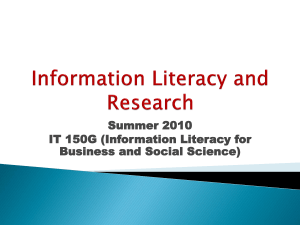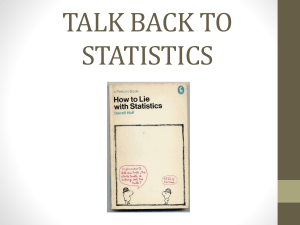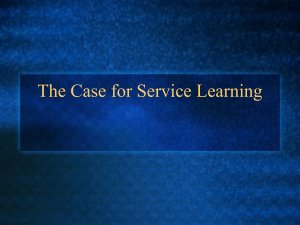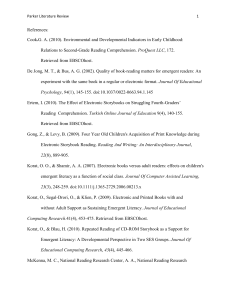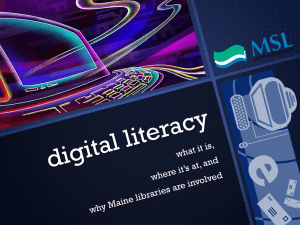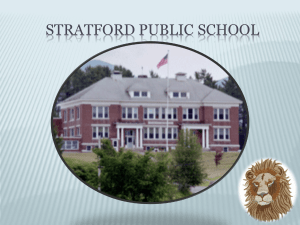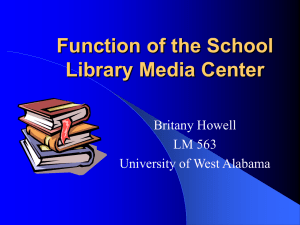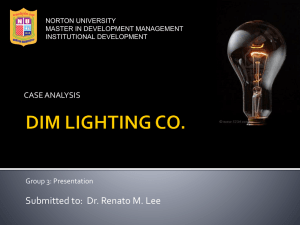Using - AndySpinks.com
advertisement
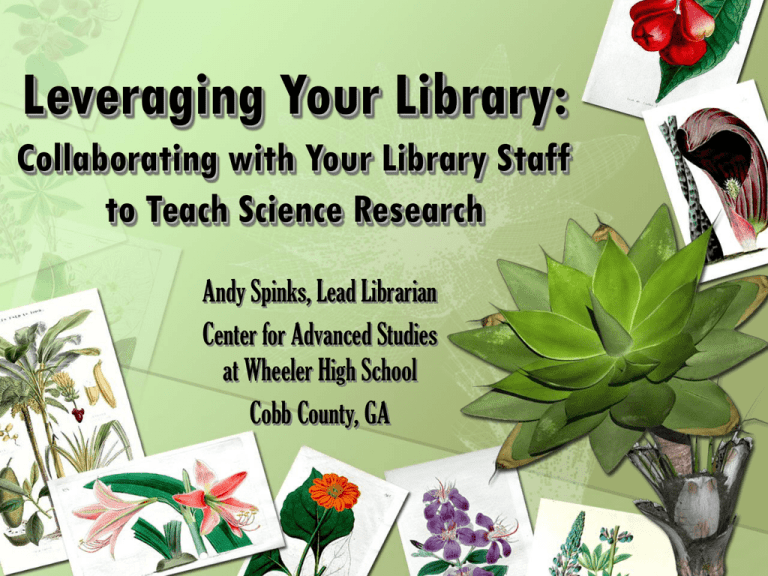
Leveraging Your Library: Collaborating with Your Library Staff to Teach Science Research Andy Spinks, Lead Librarian Center for Advanced Studies at Wheeler High School Cobb County, GA Overview • Why librarians and science teachers make such natural collaborative partners • Examples of science-library collaborations at Wheeler High School’s Magnet Program • Tips for collaborating with your library staff Common Instructional Goals • Science teachers Science literacy • Librarians Information literacy – Accessing, Evaluating, and Using Information • Many overlapping elements, including: – Using analytical/critical/higher-level thinking – Using evidence to solve problems – Identifying and avoiding bias – Communicating using data Common Instructional Methods • Inquiry Learning is the ideal method for both –Student-centered, student-driven –Active & experiential –Constructivist –Process-oriented Why Not Just Use Google? • Students and teachers routinely overestimate the students’ level of information literacy. • Technology literacy ≠ Information literacy • Students must learn to use the web effectively, but they must also learn to use more authoritative sources • Using a search engine is not “authentic” learning because it is not what scientists and academics use for a “review of the literature.” Examples of Collaboration • • • • AP Environmental Science (biome brochure) AP Biology (peer-reviewed articles) Biochemistry (Clinical Pharmacology database) 12th Grade Magnet Research/Internship Course – Peer-Reviewed Articles – Advanced Reference Articles (online & print) – APA Documentation – Using Other Libraries (Georgia Tech, etc.) Examples of Collaboration • 9th Grade “Semester-Long” Research Project – Choose topic – Conduct background research* – Write a hypothesis – Design and conduct the experiment – Present findings in a written report and an oral presentation – Enter in science fair competition Background Research for Project • Independent & Dependent Variables –What makes each one tick? –How is each one measured? • What research has been done before? • How does your research relate? How to Get Started • Discuss the materials available for your course • Brainstorm ideas for a research project • Plan the details of the project • Plan the details of the library visit –Including who will teach what & when • Extra Credit: Plan for joint assessment Thanks for Coming! • “Handouts” Available Online: – http://andyspinks.com/conferences – References & additional resources on following slides • Contact Information: – Andy.Spinks@cobbk12.org • Questions or Comments? Resources Filson, R. (2005). In Search Of….Real Science. Access Excellence. Retrieved July 16, 2005, from the National Health Museum Web site: http://www.accessexcellence.org/LC/TL/filson/ Kuhlthau, C. C. (2004). Seeking meaning: A process approach to library and information services (2nd ed.). Westport, CT: Libraries Unlimited. Kuhlthau, C. C. (n.d.). Information Search Process: A Search for Meaning Rather Than Answers. Retrieved July 15, 2005, from the Rutgers University, Department of Library and Information Science Web site: http://www.scils.rutgers.edu/~kuhlthau/Search%20Process.htm Spinks, A. (2005). The Scientific Method: A Research Process. Retrieved March 17, 2006, from http://andyspinks.com/scientificmethod/ Woods, M. (2005). Science. In The New Book of Knowledge: Scholastic Library Publishing. Retrieved July 13, 2005 from the Grolier Online database.




